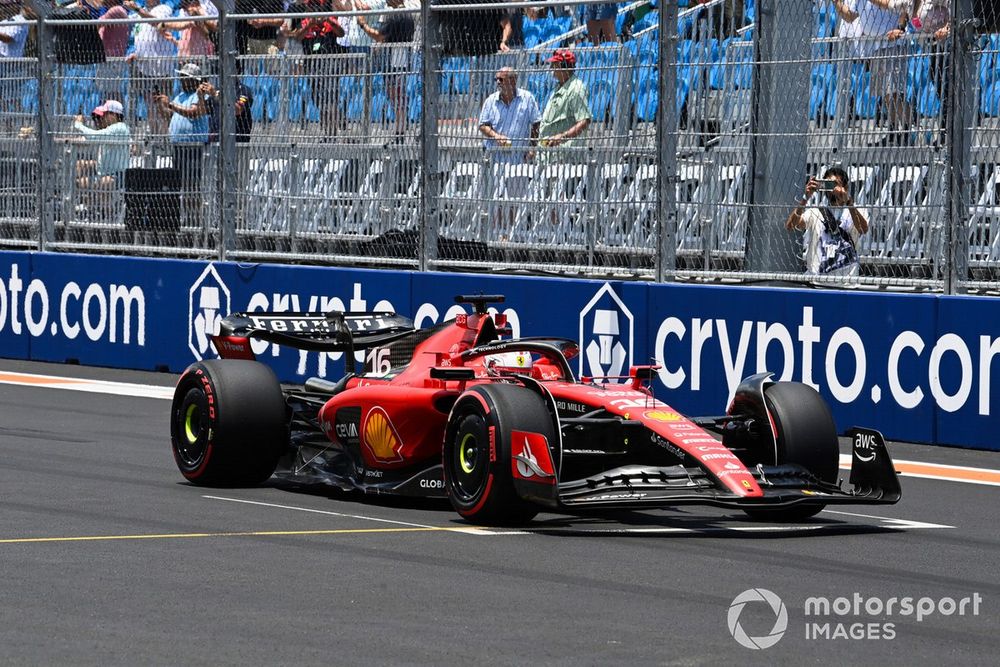Meta's Monopoly Trial: FTC Shifts Focus To Defense Strategy

Table of Contents
The FTC's Initial Claims and Antitrust Concerns
The FTC's initial complaint against Meta centered on allegations of anti-competitive behavior, primarily focusing on Meta's acquisitions of Instagram in 2012 and WhatsApp in 2014. The commission argued that these acquisitions weren't merely strategic business moves; instead, they were deliberate attempts to stifle potential competitors and solidify Meta's dominant position in the social media market. The FTC contended that Meta used its market power to eliminate threats, ultimately harming consumers through reduced innovation and choice.
- Specific acquisitions challenged: Instagram and WhatsApp acquisitions are central to the FTC's case.
- Allegations of monopolization tactics: The FTC alleged that Meta leveraged its market dominance to prevent competitors from gaining a foothold. This included accusations of predatory pricing and exclusionary practices.
- Examples of consumer harm: The FTC argued that consumers suffered from less innovation, fewer choices, and potentially higher prices due to Meta's alleged anti-competitive actions. This lack of competition, they claimed, stifled the development of alternative social media platforms.
The Shift to a Defensive Strategy: Why the Change?
Recently, the FTC's approach in the Meta's Monopoly Trial appears to have shifted. Instead of aggressively pursuing its initial claims, the commission seems to be adopting a more defensive stance. Several factors could contribute to this change:
- Recent court rulings: Adverse court rulings in similar antitrust cases might have influenced the FTC's strategy, highlighting the challenges in proving monopolization.
- Potential weaknesses in the FTC's original arguments: Meta's defense team has likely presented compelling evidence challenging the FTC's claims, potentially exposing vulnerabilities in their original case.
- Evidence presented by Meta's defense team: Meta's defense may have presented robust evidence showcasing the benefits of the acquisitions, highlighting the increased innovation and consumer choices resulting from their integration.
Key Arguments in Meta's Defense
Meta's defense strategy has centered on refuting the FTC's allegations of anti-competitive practices. Their key arguments include:
- Arguments about innovation and consumer benefits: Meta argues that the acquisitions of Instagram and WhatsApp fostered innovation and brought significant benefits to consumers, integrating features and services that improved user experience.
- Claims of legitimate business practices: Meta insists that its acquisitions were legitimate business decisions aimed at enhancing its product offerings and expanding its reach, not at eliminating competition.
- Evidence supporting Meta’s defense: Meta has likely presented substantial evidence demonstrating market competition and the benefits its platforms offer to users, thereby countering the FTC's claims of consumer harm.
Implications for the Future of Big Tech Regulation
The outcome of this Meta's Monopoly Trial will have profound implications for the future regulation of Big Tech companies. The case sets a precedent that will influence:
- Potential impact on future mergers and acquisitions in the tech sector: The ruling could significantly alter the landscape of mergers and acquisitions in the tech industry, potentially leading to stricter scrutiny of future deals.
- Influence on the regulatory landscape for social media platforms: The trial's outcome could shape future regulatory frameworks for social media, influencing data privacy regulations and competition policy.
- Implications for data privacy and consumer protection: The case's resolution could impact how data privacy is addressed within the social media sector and influence the level of consumer protection afforded.
Conclusion: Meta's Monopoly Trial: The Stakes Remain High
The Meta's Monopoly Trial, with its recent shift in the FTC's strategic approach, highlights the complexities and challenges inherent in regulating Big Tech. The FTC's defensive posture suggests the difficulties in proving anti-competitive behavior in a rapidly evolving digital market. The outcome of this case will undoubtedly shape the future of antitrust enforcement and the regulatory landscape for social media, impacting future mergers, data privacy, and consumer protection. Stay informed about the ongoing Meta antitrust trial, Meta monopoly case, and FTC vs. Meta developments to understand their impact on the tech industry. Follow reputable news sources and legal analysis for continued updates on this crucial case.

Featured Posts
-
 Balikatan Military Exercises A Super Bowl Of Training For Philippine And Us Forces
May 20, 2025
Balikatan Military Exercises A Super Bowl Of Training For Philippine And Us Forces
May 20, 2025 -
 Ferrari Addresses Leclercs Imola Gp Future
May 20, 2025
Ferrari Addresses Leclercs Imola Gp Future
May 20, 2025 -
 The Wayne Gretzky Loyalty Debate Analyzing The Impact Of Trump Tariffs And Statehood Discussions
May 20, 2025
The Wayne Gretzky Loyalty Debate Analyzing The Impact Of Trump Tariffs And Statehood Discussions
May 20, 2025 -
 Agatha Christies Towards Zero Why Episode 1 Delays The Murder
May 20, 2025
Agatha Christies Towards Zero Why Episode 1 Delays The Murder
May 20, 2025 -
 Huuhkajien Tulevaisuus Uusi Valmennus Ja Mm Karsinnat
May 20, 2025
Huuhkajien Tulevaisuus Uusi Valmennus Ja Mm Karsinnat
May 20, 2025
